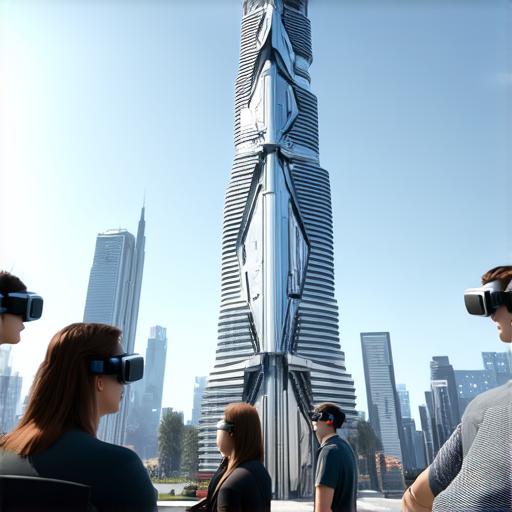Virtual Reality (VR) in Real Estate Development
Virtual reality (VR) is an emerging technology that is changing the way we experience the world. In recent years, VR has been gaining traction in various industries, including real estate development.
Benefits of Virtual Reality in Real Estate Development
Improved Visualization:
Virtual reality provides an immersive experience that enables developers to visualize a project in 3D. This allows them to see the project from different angles, explore various design options, and make better-informed decisions.
Enhanced Collaboration:
Virtual reality enables real-time collaboration between designers, architects, engineers, and other stakeholders involved in a project. This allows for faster decision-making and more efficient communication, resulting in improved project outcomes.
Cost Savings:
By enabling better visualization and enhancing collaboration, virtual reality can help reduce the number of changes made during the design and construction process. This results in fewer cost overruns and a more streamlined project timeline.
Improved Customer Experience
Virtual reality enables developers to provide potential buyers with an immersive experience that allows them to visualize a property as it will be built. This can help generate interest and increase the chances of a successful sale.
Practical Examples of Virtual Reality in Real Estate Development
Architectural Design
Virtual reality can be used to create 3D models of architectural designs, allowing developers to visualize a project from different angles and explore various design options.
Interior Design
Virtual reality can be used to create 3D models of interior designs, allowing developers to visualize how furniture and decor will fit into a space. This enables interior designers to make better-informed decisions about color schemes, textures, and layouts, resulting in more aesthetically pleasing and functional spaces.
Construction Planning
Virtual reality can be used to create 3D models of construction plans, allowing developers to visualize how a building will be constructed. This enables contractors to identify potential issues before they become problems, saving time and resources.
Challenges Associated with Implementing Virtual Reality in Real Estate Development
Cost
Virtual reality technology can be expensive to purchase and maintain. However, the cost savings associated with better visualization and enhanced collaboration can offset these expenses over time.
Technical Expertise
Implementing virtual reality requires specialized technical expertise, including software development skills and knowledge of 3D modeling. This can be a challenge for smaller real estate development firms that may not have access to these skills in-house.

Adoption by Stakeholders
Virtual reality technology is still relatively new and may be resisted by some stakeholders involved in a project. It’s important for developers to educate their stakeholders about the benefits of virtual reality and demonstrate how it can improve the design and construction process.
FAQs
What types of projects are best suited for virtual reality in real estate development?
Virtual reality is suitable for any project that requires detailed visualization and collaboration between multiple stakeholders, including architectural design, interior design, and construction planning.
How can virtual reality be used to enhance the customer experience?
Virtual reality can be used to provide potential buyers with an immersive experience that allows them to visualize a property as it will be built. This can help generate interest and increase the chances of a successful sale.
What are the potential cost savings associated with virtual reality in real estate development?
By enabling better visualization and enhancing collaboration, virtual reality can help reduce the number of changes made during the design and construction process. This results in fewer cost overruns and a more streamlined project timeline.
